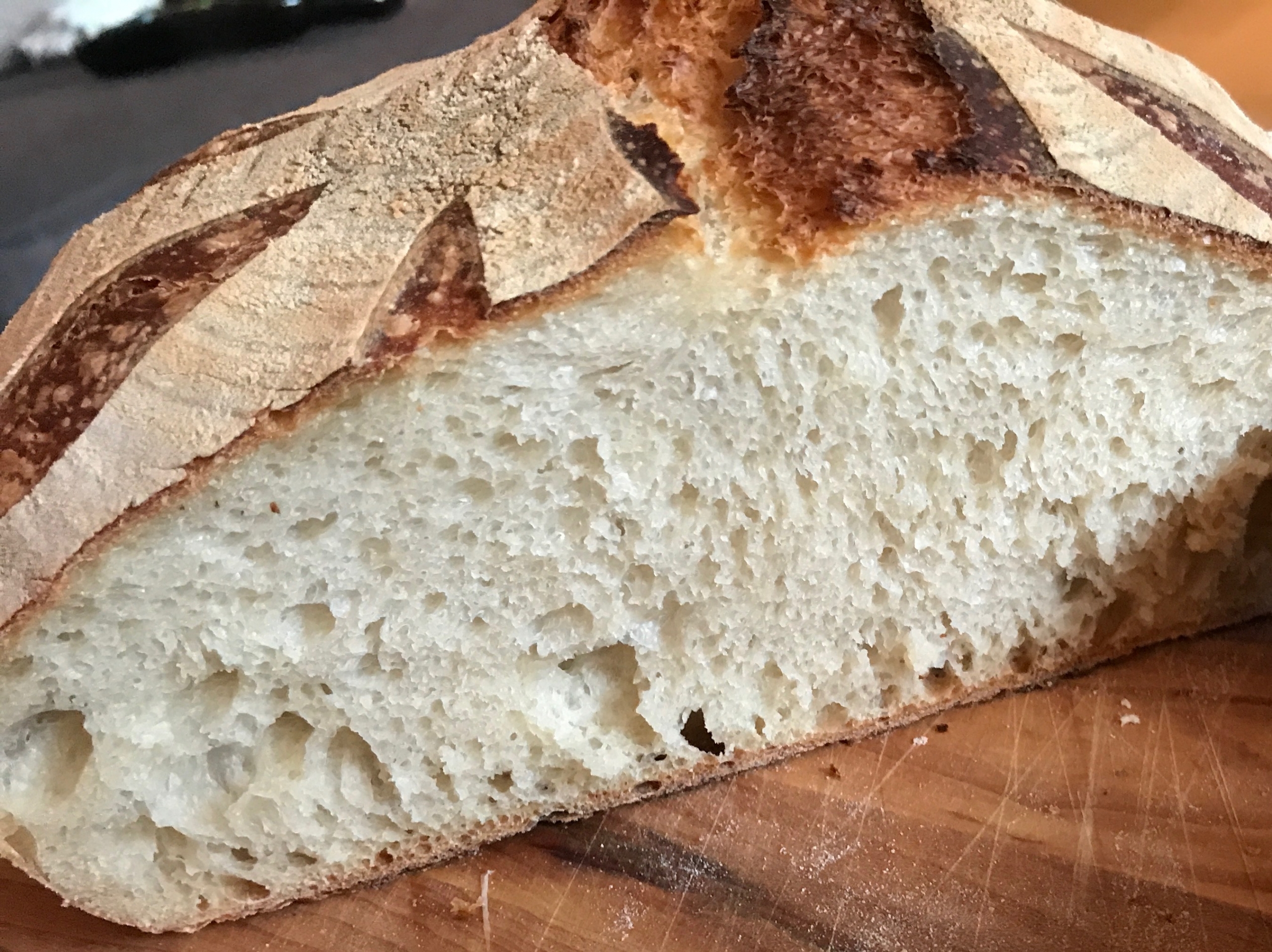This pandemic first made us panic buy toilet rolls and then we turned to dried ingredients foremost of all being flour. The obvious progression from there was baking and in particular it seems nearly everyone is making bread, and especially sourdough. I recalled the other day some notes of my Mother’s, written sometime in the 1950’s. They are as true today as they were then, if not, if it is possible, even truer or at least more poignant. As a generation emerged from rationing after WW2 she wrote and preached these words:
“ “Give us this day our daily bread.” When I was wondering what to speak about this afternoon these words came to my mind, and I decided I would try to say something about that thing which is so common and yet so vital in our everyday lives. Perhaps many of us are feeling annoyed that like so many of our daily needs it will soon cost more and yet what a wonderful thing it is. A loaf of bread. It is a symbol of many things:
seed scattered on brown earth
rain falling in silver spears to quicken green shoots
golden waving corn
men harvesting
millers covered with the sacramental dust of their toil
mothers and bakers turning out sweet scented loaves
hungry boys and girls
and strong folk, filled, going out to face life.
Never a month passes but somewhere in the world men are harvesting. New Zealand and Chile lead off with their ingathering in January. Parts of India and Egypt in February and March. The remainder of India’s harvest is gathered in April, followed by Syria & Persia in May. June brings the harvest in Italy, Spain, Turkey and the South of France. Harvest in the USA lasts over 3 months. South Russia harvest in July and also Rumania, Hungary, and Germany. Central russia, Poland, Canada and England gather in August and September, whilst Norway and Sweden begin theirs in October. November brings the harvesters of South Africa into the fields and the year is rounded off with the December harvesting of Australia, Argentina and Abyssinia.
So every month somewhere in the world men and women are expending strength to help answer our prayer: “Our Father… give us this day our daily bread.”
That is God’s way, he does not put bread into our hands without sweat and toil. He does not build cathedrals: He puts stone into the earth and uncovers the secret to humble craftsmen. He does not build houses or make loaves. He puts his plan into the hands of men and they must think and will to make it a reality.
So when we pray, “Give us this day our daily bread.” we are right at the heart of things bound closely with all the Father’s children in this prayer for bread.
Among life’s good things listed by the poet Rupert Brooke are ‘the strong crust of friendly bread’, and many tasting food.’
For millions in this sadly torn world today these represent a continual struggle. Many tasting food has long been impossible, and the strong crust of friendly bread is more than many can manage.
Bread to millions is not just a useful background to a plentiful diet, but life, very life itself.
So when our baker hands us a loaf of bread we should think of it as that part of our prayer. Our forefathers recognised the needful and sacramental nature of bread. The very word ‘lady’ which we have stripped of much of it’s significance, originally meant ‘loaf giver’ or ‘loaf kneader.’
Be gentle
When you
Touch bread
Let it nor lie
Uncared for
Unwanted
So often bread
Is taken for granted
There is such beauty
In bread
Beauty of sun and soil
Beauty of patient toil
Wind and rain have caressed it
Christ often blessed it
Be gentle
When you touch bread.
It is true that Christ often blessed it. As the son in a working man’s home he knew the significance of bread. He watched his mother as she added the leaven and prepared the dough; in the wilderness the first subtle shaft of the tempter came concerning bread; ‘son of man command these stones become bread.’ But he answered, thus putting into perspective for all time this bread for which our bodies hunger. ‘It is written, man shall not live by bread alone.’ One remembers how he fed the five thousand and the four thousand. One recalls the effort he made to escape from them , when they would accept from His hands only the bread that perisheth, and one does not forget that seemingly casual but significant note added by St Mark: ‘how the disciples had forgotten to take bread.’
Jesus could never escape the pressing needs of mens bodies, nor did he ever want to, but he wanted them to hunger for more.
When he would find words to express His divine purpose, He said “I am the bread of life.” In effect you can never be strong or really satisfied without what I (Jesus) have to offer.
Yes bread is so universally sought, both materially and spiritually, and from birth to death universally toiled for, with every month of the year.
It is unthinkable that we should speak lightly of bread.”
Ruth Manwaring
It’s brilliant Mum. Every culture takes flour and water and uniquely crafts it. It is a central symbol to our faith and the beautiful way in which you described the year long, global harvesting is a prophetic picture that the fields are always ‘white unto harvest.’






